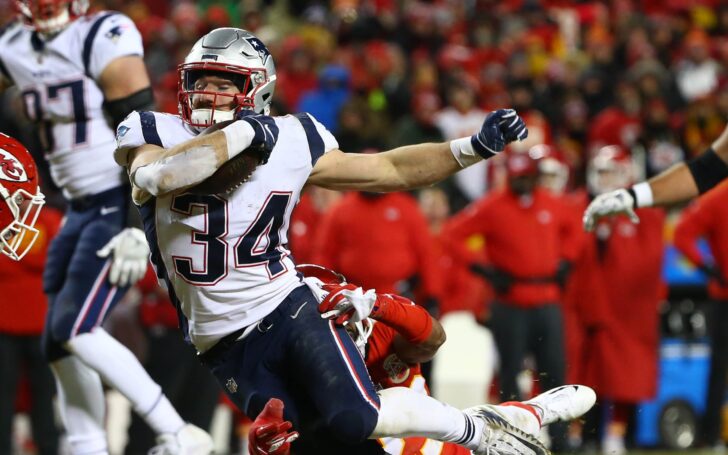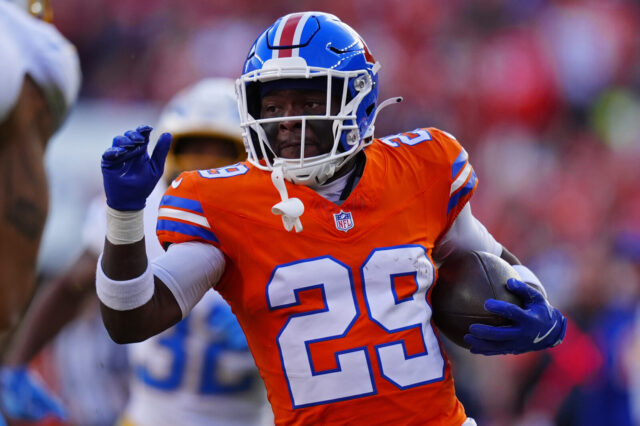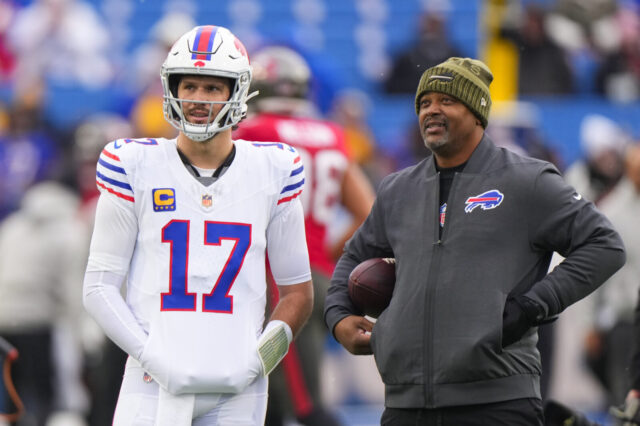Last Sunday, NFL fans were treated to one of the most exciting, exhilarating and extraordinary Championship Sundays in the history of the league.
For the first time ever, both the NFC and then the AFC Championship Games went into overtime, representing only the seventh and eighth such contests to do so. But, unfortunately, the NFC’s title game was shrouded in controversy — the New Orleans Saints should have been awarded a first down due to a pass interference call which wasn’t made — and then fans were upset with the way the AFC title game ended, too.
After the Chiefs and Patriots battled for 60 minutes, ending regulation in a 31-31 tie, the game went to overtime. New England won the toss, marched down, and won the game with a touchdown.
Some fans were “outraged” — which is all the rage on Twitter these days — at the way NFL overtime games are decided. Hey, if the Chiefs wanted to win, they needed to stop New England. And, some are likely forgetting the NFL has tweaked their rules lately, allowing both teams a chance at scoring if the first defending team can force a field goal.
Do coin tosses determine overtime games?
Maybe most interestingly, while a lot of fans are calling the NFL to change their overtime rules to mimic college football’s — where each team gets a shot from the opposing 25-yard line — Ross Tucker shows here the coin toss doesn’t necessarily determine the outcome.
Overtime coin toss winner winning %
NFL: 52.7%
CFB: 54.9%Please RT for the sake of humanity.
— Ross Tucker (@RossTuckerNFL) January 22, 2019
After reaching out to Tucker for a time frame on these statistics for context, he didn’t reply. But, interestingly, teams in college football who win the coin toss are more likely to win than those who win the toss in the NFL.
That could possibly be because winning the toss in college likely means defending first, rather than taking the ball first, as many teams do in the NFL. If a college team defends first, and they stop their opponent, they know exactly what they have to do next (score a touchdown or merely kick a field goal to win).
And while both teams in college football are awarded the football — one after the other — critics of that system say it favors teams who are dominant in the red zone since they only need to go 25 yards to score. If the NFL were to adopt this style, they could tweak it so that each team must start from their own 25, and if neither scores on their first drive, the game continues from that point.
The other bit that jumps out from the numbers Tucker shared is the extreme closeness of the odds of winning. Even if an NFL team doesn’t win the toss, they still have nearly a 50 percent chance (47.3) of winning the game.
The Chiefs needed to get a stop on multiple third downs for the Patriots, but Kansas City’s second-worst defense in the league couldn’t get it done in overtime. Hey, color commentator Tony Romo knew exactly what the Pats were going to do before they lined up, why didn’t the Chiefs’ coaches or players?
However, for one reason or another, during the small sample size of eight Championship Games which have gone into overtime, 87 percent (7-of-8) have ended with the coin toss winner eventually winning the game. Are teams more tired because it’s the second-to-last game of the year? Did the players put it all on the line in regulation, leaving them too exhausted to earn a stop? Or, are the coin toss winners riding an emotional high, leading to a win?
It’s hard to say for sure, because every game is different, but considering Championship Games decide who plays in the Super Bowl, the NFL may want to consider making a change to overtime at least in the playoffs, if not in every game.
Other options
One option that was floated on Twitter following the game was this: Each team puts 11 players on the field, starting at their own 10-yard line, and the ball is placed at mid-field. At the sound of a whistle, the players take off for the ball, which is live. If someone can score, the game is over. If one team recovers, they take over at that point. It would give players a chance to showcase their 40-yard dash times. However, the league would likely not allow this “dodgeball” style start to overtime due to safety concerns.
Another suggestion by Mike DeCourcy of the Sporting News proposes the game continues for the entire 15-minute overtime period, and whichever team scores more, wins. If they’re still tied, the game goes into a second overtime. The league could be against this change because they’d essentially be asking players to play a five-quarter game — or longer — which is incredibly rare. Again, safety concerns could rule the day on that possible change.
While this is far from the first time fans have been outraged at the way overtime is decided in the NFL — it’s why the change was made in 2012 that gives both teams the ball if the first to possess scores only a field goal — this may not be the final tipping point needed to change the rules further, either.



